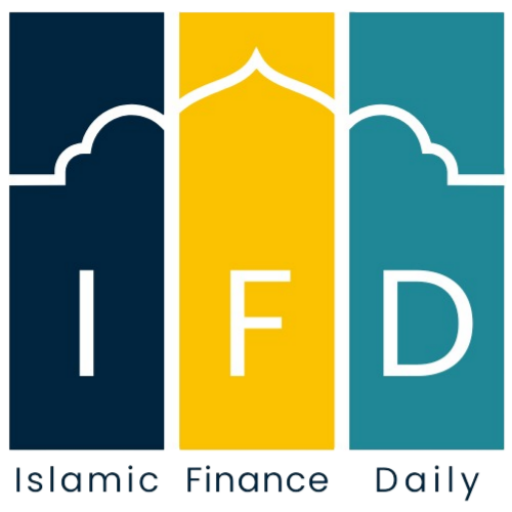In today’s rapidly evolving financial world, the concept of ethical investments has gained significant traction. For those who adhere to Islamic principles, riba-free investments hold a special importance as they align with the teachings of Islamic finance. Rooted in the idea of avoiding interest (riba) and adhering to ethical practices, these investments offer a path for building wealth in a manner that is both socially responsible and spiritually rewarding.
Islamic finance stands apart from traditional financial systems in that it prohibits riba (interest), a practice widely embedded in Western capitalist systems. Riba is viewed as exploitative, where the lender gains wealth at the expense of the borrower, creating a cycle of debt that can harm both individuals and the broader economy. This prohibition plays a critical role in shaping riba-free investments, which are designed to focus on real economic activity—tangible assets, profit-sharing, and risk-sharing, rather than just leveraging debt for profit.
Table of Contents
ToggleThe Importance of Riba-Free Investments
At the core of Islamic finance is the rejection of transactions that involve riba, which is typically a form of interest or any guaranteed return on loans. The idea is to create a more equitable system of finance that aligns with moral and ethical standards. The Islamic economic system promotes investments that create shared risk and shared reward, thereby fostering a just economy.
One of the key elements in Islamic finance is the focus on real assets and the prohibition of speculation. The Quran advises against investing in ventures that are speculative or that involve excessive uncertainty (gharar). For instance, derivatives and gambling would fall under these prohibitions as they involve speculative risks rather than tangible, productive investment activities.
A riba-free investment is built around the idea of risk-sharing. This is contrasted with the debt-based system that prevails in the conventional banking and financial sectors, which focuses heavily on debt accumulation and interest-bearing products. In Islamic finance, investments that share both the profits and the losses are encouraged, ensuring that those who invest in a business or venture have a genuine stake in its success.
Examples of Riba-Free Investments
Several riba-free investment opportunities exist within the framework of Islamic finance that allow individuals to build wealth while staying true to their ethical beliefs. Here are a few key examples:
Sukuk (Islamic Bonds) – Unlike conventional bonds that are based on interest, Sukuk are structured in a way that allows investors to earn a return based on the actual performance of an underlying asset. The return is derived from the profits generated by the asset rather than the interest on a loan.
- Equity-Based Investments – Instead of investing in debt-based securities, Islamic finance encourages investing in companies that generate profits through legitimate, halal means. This means investing in companies with ethical business practices and a strong commitment to avoiding riba and haram (forbidden) activities. Shariah-compliant stocks are often an example of this, where the company’s activities do not violate the tenets of Islam.
- Mudarabah and Musharakah – These are two forms of partnership-based financing in Islamic finance. In a Mudarabah contract, one party provides capital while the other provides expertise and management. Profits are shared according to a pre-agreed ratio, and losses are borne by the capital provider. Musharakah involves shared ownership and risk-sharing in an enterprise, where both parties invest in the project and share the profits and losses based on their contribution.
- Real Estate Investments – Islamic finance emphasizes investments in tangible assets, and real estate can be a prime example of this. Real estate investments that do not involve riba, such as through Islamic mortgages (Murabaha or Ijara), offer an ethical way to invest in property without violating Islamic principles.
- These are just a few examples of how one can engage in riba-free investments. There are many other methods and strategies for ethical wealth-building in line with Islamic finance principles. We can explore these options in more detail in future blog posts, where we will delve into additional investment models that can help individuals and organizations build sustainable wealth while staying true to their values.
The Benefits of Riba-Free Investments
Investing in a riba-free manner does more than just ensure compliance with Islamic law. It also provides numerous benefits:
- Ethical Wealth Building: By focusing on equity and partnerships rather than speculative activities, these investments support sustainable economic growth that benefits all parties involved.
- Economic Justice: The emphasis on risk-sharing and avoiding interest-based transactions ensures that no party is unfairly exploited or burdened with excessive debt, aligning with the Islamic values of fairness and justice.
- Long-Term Stability: Because riba-free investments focus on tangible assets and productive ventures, they often provide a more stable and resilient source of income. They are less vulnerable to the volatility of interest rate fluctuations or speculative bubbles in the financial market.
Conclusion
Riba-free investments are not just a means of ethical wealth-building, but a means of creating a fairer and more sustainable economy. Rooted in the principles of justice, equity, and ethical profit-sharing, these investment opportunities provide a pathway for individuals and institutions to accumulate wealth in a manner that aligns with their values.
While conventional financial systems are built on debt and interest, Islamic finance provides an alternative that prioritizes tangible assets, shared risk, and ethical business practices. By focusing on investments that promote real economic growth and avoid exploitation, riba-free investments offer a way to engage in wealth-building while adhering to Islamic teachings.
Whether through Sukuk, equity-based investments, or real estate ventures, the opportunities for ethical investing are abundant. As awareness of these options grows, more investors will seek to align their wealth-building strategies with the principles of fairness and justice, making riba-free investments a cornerstone of ethical finance.



